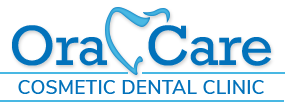Family Dentistry
- Brushes should be soft for all age groups.
- Brushes with small heads are preferred so that you can easily reach the last molars in your mouth.
- Brushes with mixed bristle heights and angled brushes are better.
Please replace your brush every 2-3 months and discard it sooner if the bristles look bent or frayed out.
It is recommended to floss at least once a day ideally at night after brushing to remove plaque and food from areas between your teeth where the tooth brush does not reach.
It is advised to do a scaling with the dentist every 6 months. This not only ensures great gum health but also catches any dental caries at an early stage and that helps us avoid bigger dental procedures.
There are several reasons why your filling may need to be replaced over a period of time. Most often it is the result of daily wear and tear. Fillings might need to be changed as they may crack, have leaking margins or fall out because of underlying or continuing decay. In case of a composite or tooth coloured filling it’s normal for it to discolour over time and so it may need to be replaced to ensure it continues to blend in when you smile. Fillings need to be replaced if you start experiencing some pain or sensitivity in them.
Digital x-rays are much safer than the traditional x-rays. Digital x-rays combine computer technology with electronic sensors and make the radiation literally negligible and have the tooth image in a few seconds, not only is the resolution better but sharper. These x-rays are cheaper, quicker and clearer.
The first dental visit is recommended by 6-9 months of age as we start seeing the first tooth erupting in the mouth. Why so early? As soon as your baby has teeth they can get cavities and so by being proactive we can take care of the child’s dental health.
We have heard the expression ‘prevention is better than cure.’
Yes, pit and fissure sealants are very beneficial specially for children with young erupting permanent molars. They can prevent and protect cavities in the young permanent teeth.
Dental Emergencies
- Rinse your mouth with warm water.
- Apply pressure on any bleeding areas using gauze or a wet tea bag.
- Apply an ice pack to your cheek if there’s any swelling.
- In case the tooth is dislodged or the entire tooth is out in one piece, rinse the tooth with warm water to get rid of the dirt or debris, this has to be done very-very gently. Avoid touching the root as much as possible.
- Place and transport the tooth in milk or in some of the person’s own saliva. The tooth can be stored in the buccal mucosa of the patient’s cheek. Rush to the dental clinic. Ideally the tooth may be reimplanted or splinted with a wire to the adjacent tooth for a period of time. The more time goes by the less likely it is that the replantation is a success. It is recommended that the tooth replanted within 30 minutes has got the best chances of survival.
- After tooth extraction, cotton should be kept in mouth for 45 minutes. After 45 minutes, throw the cotton out.
- No brushing, no spitting and no rinsing for 24 hours, as it prolongs healing process and disturbs the clot.
- Avoid hot, hard and spicy food and aerated drinks for 48 house.
- Consumption of cold and soft food for 48 hours.
- Avoid drinking from a straw.
- Smoking is contra-indicated.
- Have your medication as prescribed by the doctor.
- In case of surgery or surgical extraction keep ice pack extra – orally on the site. This should be done for the first 5 to 6 hours of surgery. It keeps swelling to a minimum.
- A few drops of blood can be felt in the mouth till the next day. Do not spit the blood out, kindly swallow it.
- In case of any doubts please call or message the doctor.
- 3 days after the procedure, start doing lukewarm salt rinses post meals to keep the area free of food lodgment.
Yes, if diabetes is left untreated then it can take a toll on your mouth. Generally, you may have less saliva causing your mouth to feel dry. So, since saliva lubricates the mouth, you become at high risk for cavities. Gums can become inflamed and will bleed. One may have problems tasting food. One may experience delayed wound healing. You may be susceptible to infections inside the mouth.
The main cause of bleeding gums is the build-up of plaque at the gum line. This leads to a condition called gingivitis. Plaque not removed hardens into tartar and this leads to increased bleeding and bad breath and can further go into an advanced form of the disease called Pyorrhoea in layman’s terms or periodontitis as we dentists call it.
We recommend brushing and flossing regularly and getting 6 monthly check-ups to stop your gums from bleeding. Certain medications also increase the likelihood of gums bleeding.
